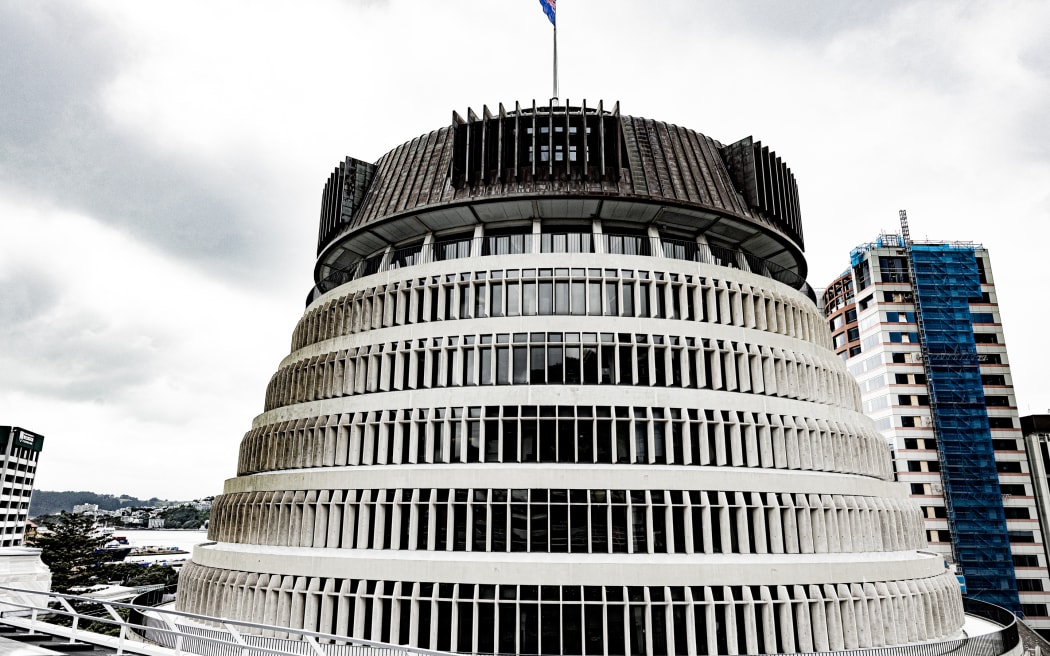
File image. Photo: VNP / Phil Smith
By Max Rashbrooke*
Opinion - How many times have we been told New Zealand is a country where anyone can get a meeting with a politician? It's a line constantly used to defuse criticism about the influence that lobbyists and vested interests have on big political decisions.
The underlying message has always been false, of course. Constituents have a decent chance of talking to their MP, but access to the real decision-makers - Cabinet ministers - has always been hard to get. Many individuals and NGOs can attest that it is possible to ask repeatedly for a meeting and get nowhere.
Conversely, as shown by Guyon Espiner's devastating reportage this week, some lobbyists have extraordinary connections. They cheerfully send texts inviting ministers and staff to boozy events. And we can be sure the same happened under previous governments. Clearly some people have far more access to ministers than others.
We also know that, unlike many other countries, New Zealand suffers terribly from the 'revolving door' phenomenon, in which people move seamlessly from politics to corporate life and back again. What should be confidential government information gets instantly turned to private use, giving some people an unfair advantage over others and raising the likelihood that public decisions will be perverted to favour private interests.
I am part of a group of experts and academics who have helped Health Coalition Aotearoa, an advocacy group, come up with a three-point plan to clean up lobbying and vested interests.
Point One is a Lobbying Act that would create a register of lobbyists - containing their names and their clients - and an online searchable database of every meeting they have with decision-makers. 'Lobbyist' would be clearly defined, as it is in other countries' regulation, to include only those influencing government as part of their job - not ordinary people contacting their MP.
All lobbying - from NGOs just as much from corporates - would be caught. The aim is not to bar lobbying, as people have a right to contact decision-makers, but to bring it out in the open, so that we can look for imbalances in who is influencing ministers.
The Lobbying Act could also mandate some kind of "cooling-off" period before people leaving politics can start lobbying. Personally, I would suggest a three-year stand-down, so no-one can work in government and lobby in the same Parliament, and so their inside information loses its currency. But I note concerns from Māori researchers that this could create undue problems for people moving between government and iwi or hapū positions, so further work may be needed.
Point Two would be to introduce rules to ensure that contractors, senior public servants, and people appointed to government committees and boards must declare - or even remove - any commercial interest that might bias their decisions. This would apply to, for instance, health advisory board members who represent the alcohol industry, or public servants who own companies that could benefit from their own agency's decisions - a problem RNZ has recently exposed.
Point Three would be to reform the Official Information Act, so that there is proactive publication of advice and research provided to ministers. That way, we can better detect situations where ministers go against that advice, and look more closely to see if vested interests have biased that decision.
Will these ideas be taken up? Because the problem affects all parties, to a greater or lesser extent, few have had incentives to address it. However, the Green Party has long called for action.
What's more, the potential for change is greater now than ever. National might traditionally have resisted action that it saw as being aimed at the business interests that comprise part of its support. But the solutions being offered address all lobbying, not just that carried out by commercial interests, and media reporting has made clear the issue is not limited to the right of politics.
Labour, for its part, might once have been reluctant to take action that could have exposed its own weaknesses, or which could have been (wrongly) attacked for limiting participation in the political process. But it has a clear incentive now to clean up the issue, and will face limited opposition if it does so.
Promisingly, Prime Minister Chris Hipkins has said he "never shut the door on those conversations" about lobbying and cooling-off periods, while National leader Christopher Luxon has said now is "probably a good time to take stock" of the issue.
Reforms of this kind rarely happen without some kind of incident or protracted media coverage to spur action. That spur now appears to be present.
As the election campaign intensifies, my hope is that all parties will be asked to take action on this issue - and that they will see the need to do so. After all, preserving the integrity of political decision-making, and ensuring it serves the public good not private interests, is something in which all parties have a stake.
* Max Rashbrooke is a senior associate of the Institute for Governance and Policy Studies at Victoria University of Wellington




